How can aid workers help war victims without falling prey to, or becoming complicit with, their persecutors?
Humanitarian organisations have an ambiguous relationship with the violence of war. Seeking to relieve its severity, they contribute to its continuation to varying degrees while subjecting themselves to becoming targets. This collection of studies explores the way aid workers attempt to “humanise” war and face the risk of becoming victims of or complicit in the war.
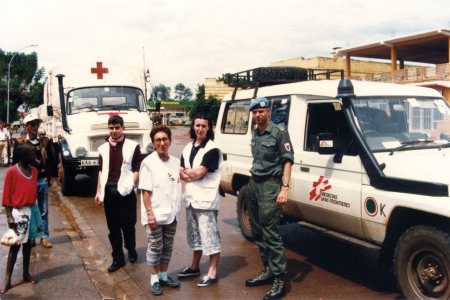 Xavier Lassalle
News in brief
Xavier Lassalle
News in brief
Humanitarian aid, genocide and mass killings. Médecins Sans Frontières, the Rwandan experience, 1982-97
11/04/2016 Read more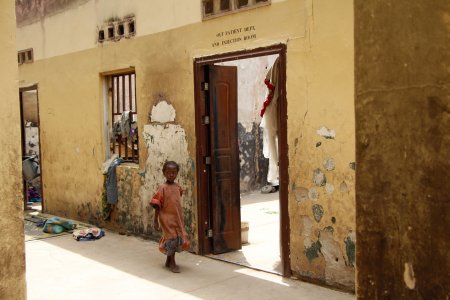 Benoit Finck
Analysis
Benoit Finck
Analysis
War and humanitarian aid
07/25/2016Rony Brauman focuses on the humanitarian environment and practices in war, in order to try to understand and analyze its political and ethical stakes. Starting with the creation of the Red Cross at the end of the XIXth century, he then focused on the contemporary postcolonial period, switching between various scales and reporting on contradictory points of view and issues.
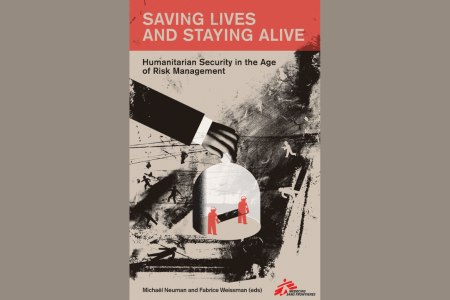 Book
Book
Saving Lives and Staying Alive: Humanitarian Security in the Age of Risk Management
03/29/2016When MSF nurse Chantal Kaghoma regained her freedom in August 2014 after being held hostage for thirteen months by rebel group ADF in the DRC, she said, “While I was in prison with all the other hostages, I had lost all faith in everyone"
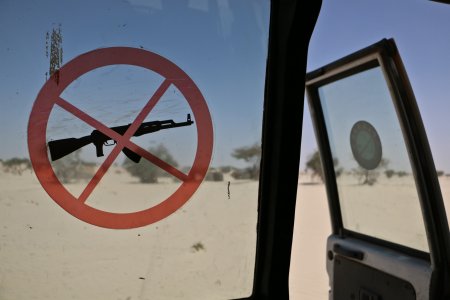 Sara Creta
Analysis
Sara Creta
Analysis
Review "Aid in Danger: The Perils and Promise of Humanitarianism"
03/29/2016This review of Larissa Fast's " 'Aid in Danger'. The Perils and Promise of Humanitarianism" was published in the International Review of the Red Cross (Volume 96 / Issue 894)
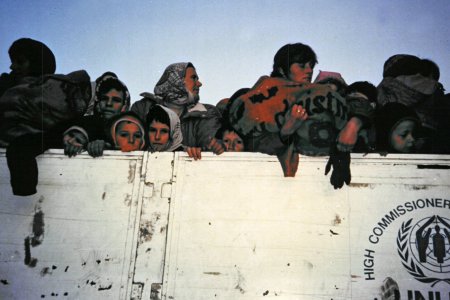 Hans Ullens/MSF
Speaking Out Case Studies
Hans Ullens/MSF
Speaking Out Case Studies
MSF and the war in the former Yugoslavia 1991-2003
02/09/2016On 14 December 1995, the signing of the Dayton Peace Accords ended the separatist war in former Yugoslavia and created the State of Bosnia-Herzegovina.
 Hans Ullens/MSF
Speaking Out Case Studies
Hans Ullens/MSF
Speaking Out Case Studies
MSF and the war in the former Yugoslavia 1991-2003
02/09/2016On 14 December 1995, the signing of the Dayton Peace Accords ended the separatist war in former Yugoslavia and created the State of Bosnia-Herzegovina.
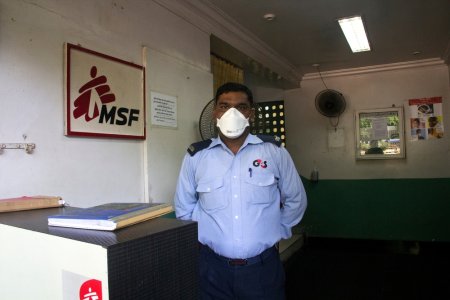 Anshul Uniyal
News in brief
Anshul Uniyal
News in brief
Soon released! Saving Lives and Staying Alive
02/08/2016 Read more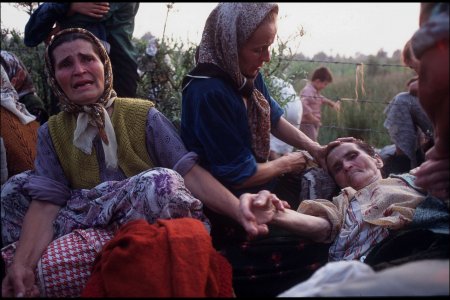 Olivier Jobard/MYOP
Speaking Out Case Studies
Olivier Jobard/MYOP
Speaking Out Case Studies
MSF and Srebrenica, 1993-2003
07/17/2015The case study ‘MSF and Srebrenica 1993-2003' explores the constraints and dilemmas raised when MSF spoke out about the events that occurred in Srebrenica's Muslim enclave.
 Olivier Jobard/MYOP
Speaking Out Case Studies
Olivier Jobard/MYOP
Speaking Out Case Studies
MSF and Srebrenica, 1993-2003
07/17/2015The case study ‘MSF and Srebrenica 1993-2003' explores the constraints and dilemmas raised when MSF spoke out about the events that occurred in Srebrenica's Muslim enclave.
